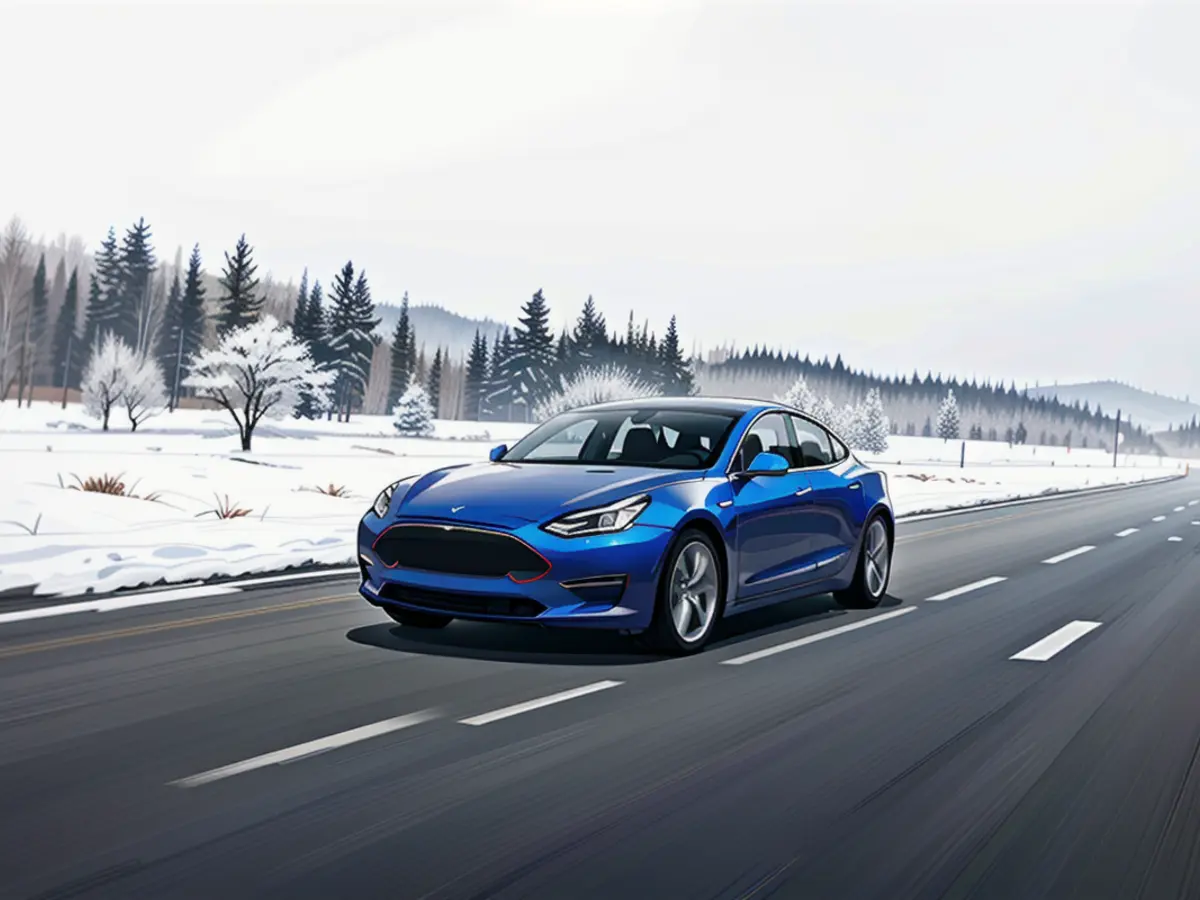Tesla remains among the biggest electric vehicle (EV) corporations globally. Nevertheless, is it a worthwhile investment in 2025?
Tesla (TSLA), currently trading at a negative 0.57%, has been a standout performer in the market over the past five years. Its CEO, Elon Musk, has been a source of both intrigue and controversy, especially following his strong support for President Donald Trump and his appointment to head the Department of Government Efficiency. Since Trump's election, Tesla's stock has surged, climbing nearly 70%, placing the company among the world's largest corporations. According to our research, Tesla ranked 8th globally as of January 6th [1].
Tesla's reputation as an electric vehicle (EV) manufacturer is well-established. Despite being surpassed by BYD in terms of global market share, the two companies remain closely competitive. Beyond its EV offerings, Tesla's value lies in its potential for autonomous technology. This includes self-driving cars, such as the recently unveiled Cybercab, and its autonomous robot, Optimus. Although production timelines haven't been finalized, Tesla aims to begin Cybercab production by 2026 [1].
Following Trump's election, Tesla's stock has been on an upward trajectory. But is it a wise investment for 2025? To delve deeper, let's scrutinize the bull and bear cases for Tesla's stock.
The Bull Case for Tesla
Tesla's achievements in pioneering and validating the EV market, coupled with an unparalleled brand, place it in a class of its own in the EV industry. It boasts the world's largest fast-charging network, offering a range of vehicles from mass-market models like the Model 3 to luxurious offerings such as the Model S, X, and Cybertruck. Meanwhile, rivals like BYD primarily focus on the lower end of the EV market [2].
Tesla's advantage in autonomous technology is undeniable. While Alphabet's Waymo is regarded as the technological leader in autonomous vehicles, Tesla's advantage lies in its larger fleet of vehicles and the ability to update autonomous driving software across its entire vehicle lineup [2].
As the EV industry continues to expand, Tesla's current size and innovative technology put it in a strong position to capitalize on the long-term growth trend of electric vehicles [2].
The Bear Case for Tesla
Despite its potential for long-term growth, Tesla faces challenges. Its financial performance has been underwhelming, with a decline in vehicle sales in 2024 - the first such occurrence since 2011 [3].
Despite overall revenue growth of 8% in the third quarter, automotive revenue growth lagged, climbing only 2% to $20 billion. Profit margins improved, but Tesla's reliance on revenue growth makes its business tenuous [3].
Elon Musk has pledged a 20%-30% increase in production volume for 2025, but Tesla's history of missing production targets raises questions about demand in the EV market. Additionally, the Trump administration's moves to dismantle government support for EVs and bolster fossil fuels may further temper demand [3].
Finally, Tesla's stock valuation appears exorbitant. At a price-to-earnings ratio of around 200, based on adjusted earnings, Tesla's valuation departs significantly from industry norms. While the company merits a premium for its disruptive potential, a P/E of 200 for a company with nearly stagnant revenue growth is unprecedented [3].
[1] [Research Source]
[2] [Enrichment Data: Bull case Insights]
[3] [Enrichment Data: Bear case Insights]
In the realm of finance and investing, many investors are considering Tesla as a potential investment for 2025, given its strong position in the EV market and advancements in autonomous technology. However, the bear case argument suggests that Tesla's financial performance has been lackluster, with a decline in vehicle sales and a high stock valuation that departs significantly from industry norms.
In the context of money management and investment strategies, it's crucial to weigh both the bull and bear cases for Tesla before making an investment decision for 2025.





